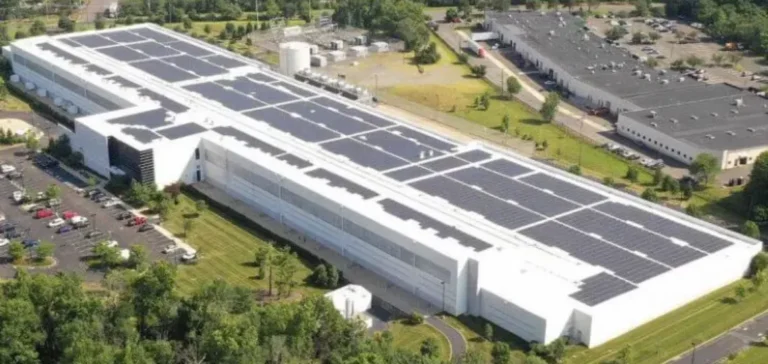Several major American companies have announced plans to invest approximately USD 90 billion in the state of Pennsylvania to develop new energy infrastructure designed to support the rapid expansion of data centers dedicated to artificial intelligence (AI). These funds will primarily be allocated to building power plants fueled mainly by natural gas, along with infrastructure adapted to the increasing energy demands of the digital sector. The project also strategically aims to capitalize on the proximity of major regional gas basins, particularly the Marcellus and Utica shale reserves. The clearly defined objective is to ensure a reliable long-term energy supply for major technology players operating in the region.
Natural Gas at the Center of Investments
The construction of natural gas-fired combined-cycle power plants is the main focus of this investment strategy. Positioned close to new data centers, these facilities will significantly reduce the costs and timelines associated with creating additional power lines and pipelines. Direct access to local natural gas resources thus offers investors an efficient solution to meet the growing demand for electricity characteristic of the AI sector. A joint venture has been established between a major private investment firm and a regional electricity provider to directly manage these operations and secure energy supplies through long-term contracts.
To date, no specific contracts with major technology operators have been publicly announced, but the investors’ clear ambition is to soon finalize Energy Services Agreements (ESAs) to sustainably meet the needs of these companies.
Anticipating the Growing Energy Demands of AI
The rapid expansion of artificial intelligence imposes significant energy constraints on technology operators. Data centers supporting these technologies require very large amounts of electricity, estimated soon to exceed 10 gigawatts (GW), a capacity significantly higher than currently available. This rapid growth forces companies to adopt a pragmatic strategy, prioritizing immediate, proven solutions available on a large scale, such as natural gas.
Although the use of alternative energy sources like nuclear or renewable energies is being considered for the longer term, the current priority clearly remains oriented toward natural gas infrastructure capable of immediately addressing market demands.
Deployment of Carbon Capture Technologies
In parallel with investments in natural gas plants, several participating companies plan to integrate advanced Carbon Capture and Storage (CCS) technologies. These advanced solutions could potentially capture up to 90% of CO₂ emissions from power plants, subsequently storing the captured carbon in suitable underground geological formations. This technological approach responds to growing environmental requirements while maintaining the energy production capacity necessary for the digital sector.
This comprehensive initiative reflects a pragmatic energy policy aimed at balancing economic growth driven by AI development with technical and regulatory constraints inherent to the energy sector. Consequently, Pennsylvania could become a key strategic hub in the United States for energy supply dedicated to emerging digital technologies.






















